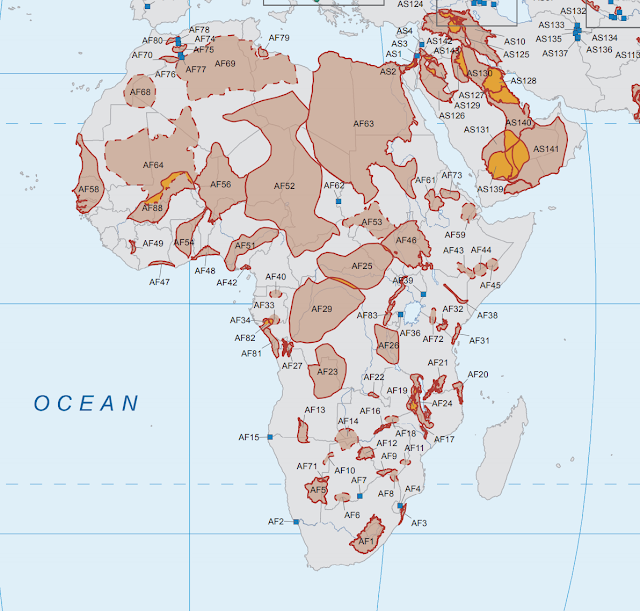Concluding Post - 'Water the Next Oil?'
Concluding Post - 'Water the Next Oil?'
We commenced this blog by questioning Serageldins claim ‘is water the next oil?’ and have now explored the biopolitical, geopolitical, international and local dimensions of both surface and groundwater resources. We know oil, the fuel of modern consumptive societies, has fuelled major conflicts globally. The concept of the ‘resource curse’ helps to explain oil’s fuelling of conflict – but do nations war over water? As discussed in the first blog post, water is both a geopolitical and biopolitical issue on the African continent. The fundamentality of the resource to the sustenance and development of societies and it’s increasing scarcity due to climatic change, population growth, expanding agricultural demands etc. present’s the opportunity of conflict. Though water, the sustenance of life, instead presents opportunity for cooperation. As I have illustrated within my blog posts, water at all scales (from local to international) and water of all forms (from surface to groundwater) facilitates cooperation. Water must be viewed in this holistic sense – hydrological systems are interconnected and unsustainable use of one water resource will have negative knock on effects to other riparian’s. Water is essential to ensure improved livelihoods across Africa from food security to sanitation and water does not value borders so cannot be isolated or secured. Nation’s know they must cooperate as illustrated by example’s such as the Nile Basin Initiative and the Joint authority on the Nubian Sandstone Aquifer System. Though tensions may arise over shared water resources – the essentiality of water will ensure cooperation. Cooperation over water should therefore negate conflict - from 'Hydropolitics' to 'Hydro-Cooperation'. Water is therefore contrary to oil – oil fuels conflict as a strategic resource which fuels consumptive societies, water on the other hand is an essential resource which sustains societies. We have relied on water for the entirety of our existence and will rely on water for the rest of our existence – and that existence is reliant on cooperation.
The 'Water Planet' - Source
We commenced this blog by questioning Serageldins claim ‘is water the next oil?’ and have now explored the biopolitical, geopolitical, international and local dimensions of both surface and groundwater resources. We know oil, the fuel of modern consumptive societies, has fuelled major conflicts globally. The concept of the ‘resource curse’ helps to explain oil’s fuelling of conflict – but do nations war over water? As discussed in the first blog post, water is both a geopolitical and biopolitical issue on the African continent. The fundamentality of the resource to the sustenance and development of societies and it’s increasing scarcity due to climatic change, population growth, expanding agricultural demands etc. present’s the opportunity of conflict. Though water, the sustenance of life, instead presents opportunity for cooperation. As I have illustrated within my blog posts, water at all scales (from local to international) and water of all forms (from surface to groundwater) facilitates cooperation. Water must be viewed in this holistic sense – hydrological systems are interconnected and unsustainable use of one water resource will have negative knock on effects to other riparian’s. Water is essential to ensure improved livelihoods across Africa from food security to sanitation and water does not value borders so cannot be isolated or secured. Nation’s know they must cooperate as illustrated by example’s such as the Nile Basin Initiative and the Joint authority on the Nubian Sandstone Aquifer System. Though tensions may arise over shared water resources – the essentiality of water will ensure cooperation. Cooperation over water should therefore negate conflict - from 'Hydropolitics' to 'Hydro-Cooperation'. Water is therefore contrary to oil – oil fuels conflict as a strategic resource which fuels consumptive societies, water on the other hand is an essential resource which sustains societies. We have relied on water for the entirety of our existence and will rely on water for the rest of our existence – and that existence is reliant on cooperation.

The 'Water Planet' - Source


Comments
Post a Comment